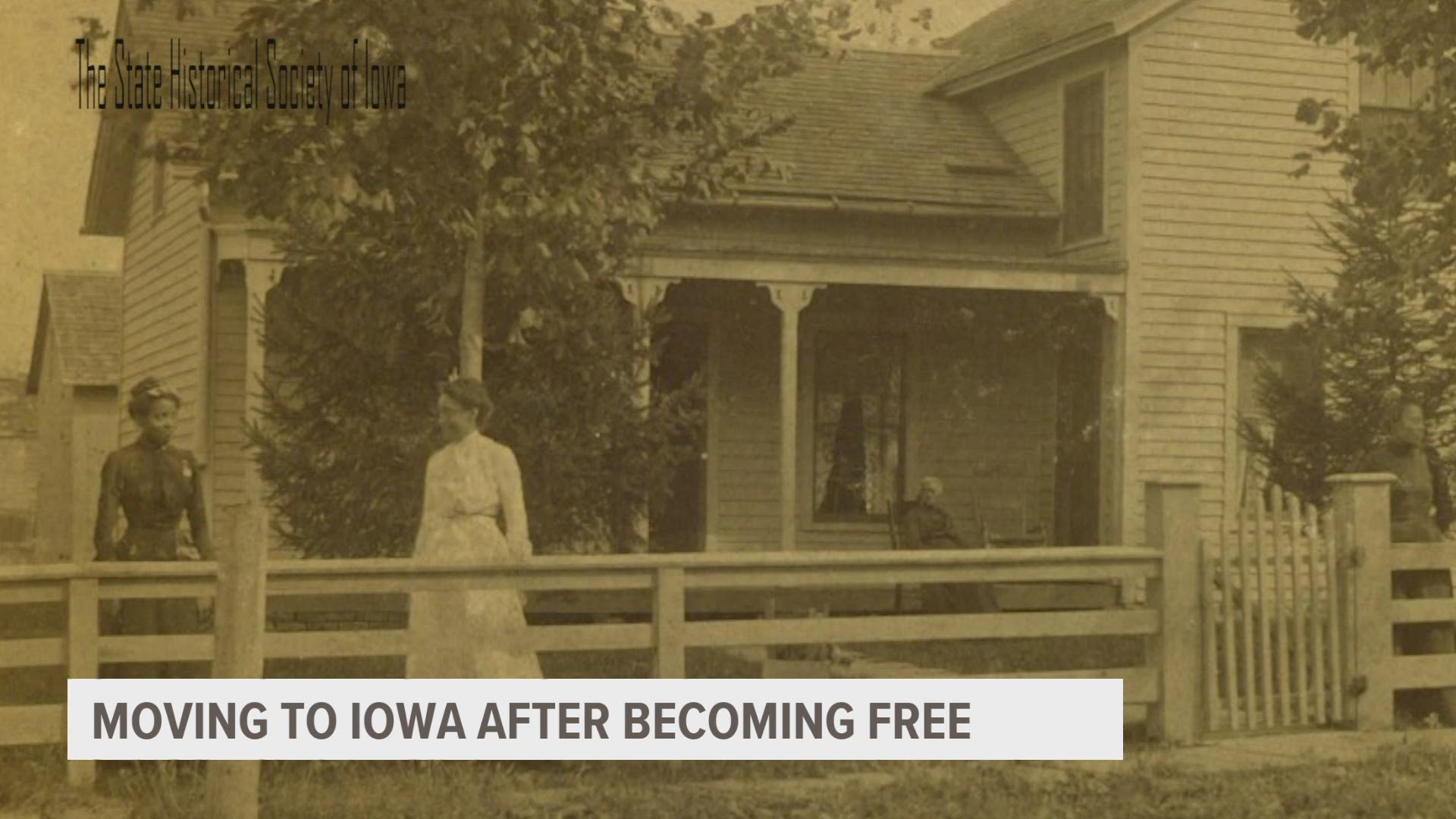DES MOINES, Iowa — This Saturday is Juneteenth, which became a Federal holiday this week.
It's a day that celebrates the emancipation of African Americans who had been enslaved in the United States.
But even before the US abolished slavery, Black Iowans were celebrating the emancipation days of other countries' enslaved populations.
Leo Landis, state curator for the State Historical Society of Iowa said Black Iowans have been celebrating emancipation since 1857 in Muscatine, Iowa.
"This was connected to Blacks receiving freedom in the British West Indies," Landis said.
He said Black Iowans would celebrate together with picnics, speeches and sometimes dances.
Landis noted these practices continued to grow once the United States' Emancipation Proclamation was signed.
He also said more formerly enslaved families migrated to Iowa after the signing.
One of those families was the McKees, who moved to Iowa in 1870.
"The McKees, they start as farmers," Landis said. "In fact, they farmed in Dallas County through the 1880s into the early 1890s."
The family consisted of John, Madeline, and their daughters Lucy, Nora and Samantha.
"So the McKees were the only Black family in Dallas County from about 1875 to at least 1890," Landis said.
He said the McKees were very social. Their visit to Des Moines was detailed articles in the Iowa Bystander, a newspaper geared towards African Americans.
According to John's headstone at Stump-Thornton-Barto Cemetery, he died in 1898, nearly two decades after moving to Iowa. Landis said it's unclear when Madeline died but he believes she buried somewhere near her husband.
Landis also said the family probably had a hard time being the only Black family in Dallas County, which could be why the daughters later moved to Des Moines.
The State Historical Society has a quilt signed by Nora McKee Dixon from an auction at St. Paul's African Methodist Episcopal Church in the 1940s.
All of the McKee daughters lived into the 20th century. Lucy died in 1915, Samantha in 1952 and Nora in 1958.

